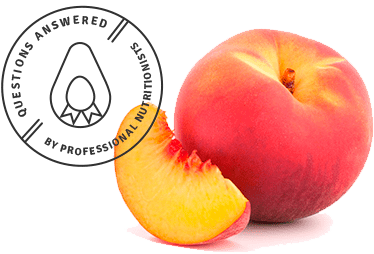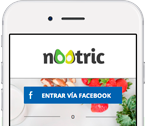Martin
What is the best snack to increasse muscular mass
What's the best foods to eat before and after working out
Tony Diaz
1
votes(Highest rated answer)
Hi Martin,
Before working out, fast release carbohydrates will help you out to obtain the energy your muscles need. You can drink home-made orange juice with fresh (e.g. bananas) or desiccated fruits (e.g. raisins). Another option would be white bread sandwiches with fat-free cream cheese (in case you are not so keen to sweet snacks).
Fat would not help you at this stage (it does not mean you shouldn’t eat healthy fats in the rest of your meals). Therefore, in case you drink milk, choose skimmed and lactose-free milk.
After working out, a combination of fast release carbohydrates (similar to the ones mentioned above) and protein (fat-free yoghurt, skimmed lactose-free milk, cottage cheese…) will be ideal to refill you glycogen deposits and also promote the muscle formation. Again, do not choose fatty foods at this point (is basically a digestion matter). However, Omega-3 fat (e.g. the fat that salmon, nuts and seeds contain) will reduce the inflammation produced in your muscles due the stress caused by the exercise itself).
Do not worry too much about the importance of the snacks you have right before and after working out. It is good to care about it, but the rest of the meals of your diet through the day (even a couple of hours before or after the work out) will provide the nutrients that your muscles will use.
Before working out, fast release carbohydrates will help you out to obtain the energy your muscles need. You can drink home-made orange juice with fresh (e.g. bananas) or desiccated fruits (e.g. raisins). Another option would be white bread sandwiches with fat-free cream cheese (in case you are not so keen to sweet snacks).
Fat would not help you at this stage (it does not mean you shouldn’t eat healthy fats in the rest of your meals). Therefore, in case you drink milk, choose skimmed and lactose-free milk.
After working out, a combination of fast release carbohydrates (similar to the ones mentioned above) and protein (fat-free yoghurt, skimmed lactose-free milk, cottage cheese…) will be ideal to refill you glycogen deposits and also promote the muscle formation. Again, do not choose fatty foods at this point (is basically a digestion matter). However, Omega-3 fat (e.g. the fat that salmon, nuts and seeds contain) will reduce the inflammation produced in your muscles due the stress caused by the exercise itself).
Do not worry too much about the importance of the snacks you have right before and after working out. It is good to care about it, but the rest of the meals of your diet through the day (even a couple of hours before or after the work out) will provide the nutrients that your muscles will use.

Joanne Jackson
1
votes
Nutrient Timing - When you consume your carbs and proteins is absolutely key!
It is essential that you have enough energy to fuel your workouts. Having a good muscle-glycogen (stored energy) will allow optimal intensity and achieve a greater training effect. A low muscle-glycogen concentration leads to early fatigue, reduced training intensity and below par performance.
The best way to obtain glycogen is from slow-releasing carbohydrates. Consuming protein as well as carbohydrates before training can significantly increase the amount of protein the muscles absorb during the workout and over the next few hours. This is significant because the more amino acids the body retains, the greater the speed of recovery and growth of muscle.
Therefore eat 1-3 hours before exercising. Consume water only for the 30 mins before exercise. If you have had a meal within three hours of the start of a training session you do not need to eat any more. If it has been longer than three hours, have a simple carb snack within one hour of the start of training - The snack should 100-200 kcals of carbs with water. Note - For training sessions lasting under 2 hours you can rely on fat stores for energy and consume fewer carbohydrates in the form of sports drinks/gels.
After training - muscle-glycogen is depleted and increased cortisol levels are beginning to breakdown muscle tissue (catabolic state) and the only way to reverse this is to consume a quickly digestible post-workout meal within ½ hour to an hour (unless you have eaten a meal containing protein pre-training).
Following training, if it is not a meal time have a recovery drink combining protein and carbohydrate to improve glycogen replenishment, recovery, and protein synthesis. I would suggest blending up some quality protein powder with fruit juice or milk/milk substitute, fruit (e.g. berries or banana) to make a recovery smoothie. For added antioxidant support include powdered greens or fruit powders (available in a health food shop).
If it is a meal time eat lean protein i.e. a meal containing lean chicken, turkey, or beans/pulses with whole grains, root vegetables or squash.
Wait a few hours before consuming fat as it inhibits carbohydrate absorption. If you are training twice a day or more this process is essential to make the most of the second session.
It is essential that you have enough energy to fuel your workouts. Having a good muscle-glycogen (stored energy) will allow optimal intensity and achieve a greater training effect. A low muscle-glycogen concentration leads to early fatigue, reduced training intensity and below par performance.
The best way to obtain glycogen is from slow-releasing carbohydrates. Consuming protein as well as carbohydrates before training can significantly increase the amount of protein the muscles absorb during the workout and over the next few hours. This is significant because the more amino acids the body retains, the greater the speed of recovery and growth of muscle.
Therefore eat 1-3 hours before exercising. Consume water only for the 30 mins before exercise. If you have had a meal within three hours of the start of a training session you do not need to eat any more. If it has been longer than three hours, have a simple carb snack within one hour of the start of training - The snack should 100-200 kcals of carbs with water. Note - For training sessions lasting under 2 hours you can rely on fat stores for energy and consume fewer carbohydrates in the form of sports drinks/gels.
After training - muscle-glycogen is depleted and increased cortisol levels are beginning to breakdown muscle tissue (catabolic state) and the only way to reverse this is to consume a quickly digestible post-workout meal within ½ hour to an hour (unless you have eaten a meal containing protein pre-training).
Following training, if it is not a meal time have a recovery drink combining protein and carbohydrate to improve glycogen replenishment, recovery, and protein synthesis. I would suggest blending up some quality protein powder with fruit juice or milk/milk substitute, fruit (e.g. berries or banana) to make a recovery smoothie. For added antioxidant support include powdered greens or fruit powders (available in a health food shop).
If it is a meal time eat lean protein i.e. a meal containing lean chicken, turkey, or beans/pulses with whole grains, root vegetables or squash.
Wait a few hours before consuming fat as it inhibits carbohydrate absorption. If you are training twice a day or more this process is essential to make the most of the second session.

Maria Mitchell
0
votes
Hello Martin
Pre and post nutrition is really important both for maximising your performance and for ensuring that the body has adequate fuel for recovery. 1-3 hours before working out I would advise you having a good intake of complex carbohydrates, so think oats, sweet potatoes, rice or pasta and vegetables. Complex carbohydrates are digested slowly by the body and help to keep glycogen and blood sugar levels even. Glycogen is basically the fuel our bodies uses when working out so it is essential to maximising performance to ensure good supplies.
Following exercise it is important to refuel the body, this will help with muscle recovery, aim to eat something within 45 minutes as this is optimal for ensuring glycogen levels are stable and to prevent fatigue. During this time it is recommended to combine carbohydrate and protein rich foods this may be a protein shake with berries, lean meats such as turkey or chicken or eggs. Starchy vegetables and fruits. By combining protein and carbohydrate post exercise you aid glycogen recovery and amino acid uptake.
One last thing to bear in mind is also hydration, you should ensure that prior to exercise you are well hydrated, ensure you drink 400-600ml of water 2 hrs before exercise, only consume water if you aim to exercise within 1 hr. and after your work out ensure you are also drinking adequate water levels at comfortable intervals.
Pre and post nutrition is really important both for maximising your performance and for ensuring that the body has adequate fuel for recovery. 1-3 hours before working out I would advise you having a good intake of complex carbohydrates, so think oats, sweet potatoes, rice or pasta and vegetables. Complex carbohydrates are digested slowly by the body and help to keep glycogen and blood sugar levels even. Glycogen is basically the fuel our bodies uses when working out so it is essential to maximising performance to ensure good supplies.
Following exercise it is important to refuel the body, this will help with muscle recovery, aim to eat something within 45 minutes as this is optimal for ensuring glycogen levels are stable and to prevent fatigue. During this time it is recommended to combine carbohydrate and protein rich foods this may be a protein shake with berries, lean meats such as turkey or chicken or eggs. Starchy vegetables and fruits. By combining protein and carbohydrate post exercise you aid glycogen recovery and amino acid uptake.
One last thing to bear in mind is also hydration, you should ensure that prior to exercise you are well hydrated, ensure you drink 400-600ml of water 2 hrs before exercise, only consume water if you aim to exercise within 1 hr. and after your work out ensure you are also drinking adequate water levels at comfortable intervals.

Andrea Prochazkova
0
votes
Hi Martin
As previously mentioned, the most important thing is your overall diet rather than focusing on snacks before and after a workout. The process of building muscles is a long one – during exercise, the muscles get damaged, and the body then needs to repair and re-build them to form even stronger, greater muscle mass under the correct nutritional and recovery conditions.
Therefore, you should seek the help of a qualified personal trainer to ensure your muscles are trained correctly with appropriate recovery period to enable muscle growth.
From the nutritional point of view, your diet should be high in protein like eggs, fish, meat, pulses, nuts and seeds and abundant in vegetables that supply antioxidants that help you to repair and build muscles (aim for 8 portions a day). Excellent sources of antioxidants (including vitamin C) in fruit are berries and tropical fruit like oranges and mandarins.
Whole grain products (whole grain bread, brown rice, quinoa, pulses) are essential for slow-release energy so you can train for longer
.
Healthy fats are also vital and should be included in your diet. A nutritional therapist can help you establish the correct ratio of nutrients in your diet based on your needs.
Therefore, to answer your question and to add to the list, good pre-workout snacks could be whole grain bread/pancakes with jam, banana with roasted nuts and maple syrup, strawberries with whipped cream and post-workout snacks could be oatcakes with guacamole or boiled egg, dark chocolate (70% or higher), and vegetable sticks with hummus.
However, if you find it difficult to build muscle mass following an adequate diet, you might need to seek an advice of your doctor. Excessive production of the hormone cortisol (the stress hormone) by your body can cause muscle breakdown and wasting hence it needs to be corrected before you can see results.
Good luck!
As previously mentioned, the most important thing is your overall diet rather than focusing on snacks before and after a workout. The process of building muscles is a long one – during exercise, the muscles get damaged, and the body then needs to repair and re-build them to form even stronger, greater muscle mass under the correct nutritional and recovery conditions.
Therefore, you should seek the help of a qualified personal trainer to ensure your muscles are trained correctly with appropriate recovery period to enable muscle growth.
From the nutritional point of view, your diet should be high in protein like eggs, fish, meat, pulses, nuts and seeds and abundant in vegetables that supply antioxidants that help you to repair and build muscles (aim for 8 portions a day). Excellent sources of antioxidants (including vitamin C) in fruit are berries and tropical fruit like oranges and mandarins.
Whole grain products (whole grain bread, brown rice, quinoa, pulses) are essential for slow-release energy so you can train for longer
.
Healthy fats are also vital and should be included in your diet. A nutritional therapist can help you establish the correct ratio of nutrients in your diet based on your needs.
Therefore, to answer your question and to add to the list, good pre-workout snacks could be whole grain bread/pancakes with jam, banana with roasted nuts and maple syrup, strawberries with whipped cream and post-workout snacks could be oatcakes with guacamole or boiled egg, dark chocolate (70% or higher), and vegetable sticks with hummus.
However, if you find it difficult to build muscle mass following an adequate diet, you might need to seek an advice of your doctor. Excessive production of the hormone cortisol (the stress hormone) by your body can cause muscle breakdown and wasting hence it needs to be corrected before you can see results.
Good luck!

Elizabeth Cooper
0
votes
Hi Martin, thanks for your question.
As everyone has mentioned, your overall diet is really important and eating the right amount of carbs and protein before and after exercise is also vital, particularly if you are exercising more than once a day or if there is only a short amount of time between exercise sessions. If you don't recover sufficiently after exercise it will negatively impact your performance.
When including protein in your diet, ensure you don't eat too much. It is very common to over-consume protein when working out but depending on the amount of exercise you're doing you should have between 1g - 1.6g per protein per kg of weight.
It is also really important to support your adrenals, as exercise can be a stressor and can invoke a high cortisol response. High cortisol can break muscle down as well as reduce immunity making you more susceptible to infections. Therefore, in terms of diet overall, ensure you have plenty of vitamin C from fruit and vegetables, magnesium from green leafy vegetables, nuts, seeds and beans, and also B vitamins found in a wide variety of animal and plant foods.
As everyone has said avoid fat just before exercise, as it can be slow to digest and can cause gastric discomfort. However, it is important to include healthy fats in your daily diet to support overall health e.g. avocado, nuts, seeds, oily fish, olive oil.
Hope this helps.
As everyone has mentioned, your overall diet is really important and eating the right amount of carbs and protein before and after exercise is also vital, particularly if you are exercising more than once a day or if there is only a short amount of time between exercise sessions. If you don't recover sufficiently after exercise it will negatively impact your performance.
When including protein in your diet, ensure you don't eat too much. It is very common to over-consume protein when working out but depending on the amount of exercise you're doing you should have between 1g - 1.6g per protein per kg of weight.
It is also really important to support your adrenals, as exercise can be a stressor and can invoke a high cortisol response. High cortisol can break muscle down as well as reduce immunity making you more susceptible to infections. Therefore, in terms of diet overall, ensure you have plenty of vitamin C from fruit and vegetables, magnesium from green leafy vegetables, nuts, seeds and beans, and also B vitamins found in a wide variety of animal and plant foods.
As everyone has said avoid fat just before exercise, as it can be slow to digest and can cause gastric discomfort. However, it is important to include healthy fats in your daily diet to support overall health e.g. avocado, nuts, seeds, oily fish, olive oil.
Hope this helps.

Sharon Scott
0
votes
Hi Martin,
Thanks for your question.
I echo everyone's advice regarding overall diet being the key when looking to support muscle mass.
Your overall body composition will determine how much glycogen is stored within the muscles and liver. The more muscle mass you have the higher your glycogen stores will be. An average athlete may store in the region of 400gs of glycogen in the muscles and 100gs in the liver. For a sedentary individual the storage may be around 275g in the muscles - it is different for everyone.
1-3 hrs prior to exercise it is therefore important to ensure that you have eaten some carbohydrates (slow release are preferable as they will be stored as glycogen in the body which will provide energy to support sustenance during a workout. Low glycaemic load foods such as brown rice, oats, or wholemeal bread/pasta) with some lean protein is an idea meal to opt for.
During exercise the body will use the glycogen stores as energy first and foremost. Once these stores have been depleted muscle may be broken down for energy. This may happen during endurance events such as marathons.
It is also important to ensure you are getting a diet rich in antioxidants - specifically vitamin C during intense exercise. Exercise can be a stressor to the body increasing free radical production. Vitamin C is thought to work to support in lessening the impact of free radicals. Vitamin C is also required to support collagen formation which is important for the health of the joints which can be important during certain types of exercise.
After your workout I advise eating a small meal as soon as possible (ideally within 30 minutes). Include carbohydrates to replace the lost glycogen stores as well as protein to support repair and growth of muscle. Combining complete protein such as eggs, meat, fish, cheese, milk, Greek yogurt, quinoa, chia seeds, soy beans, or beans with rice as well as a slow release carbohydrate such as wholegrain bread, oatcakes, wholemeal pitta bread is a great option.
Best Wishes
Sharon
Thanks for your question.
I echo everyone's advice regarding overall diet being the key when looking to support muscle mass.
Your overall body composition will determine how much glycogen is stored within the muscles and liver. The more muscle mass you have the higher your glycogen stores will be. An average athlete may store in the region of 400gs of glycogen in the muscles and 100gs in the liver. For a sedentary individual the storage may be around 275g in the muscles - it is different for everyone.
1-3 hrs prior to exercise it is therefore important to ensure that you have eaten some carbohydrates (slow release are preferable as they will be stored as glycogen in the body which will provide energy to support sustenance during a workout. Low glycaemic load foods such as brown rice, oats, or wholemeal bread/pasta) with some lean protein is an idea meal to opt for.
During exercise the body will use the glycogen stores as energy first and foremost. Once these stores have been depleted muscle may be broken down for energy. This may happen during endurance events such as marathons.
It is also important to ensure you are getting a diet rich in antioxidants - specifically vitamin C during intense exercise. Exercise can be a stressor to the body increasing free radical production. Vitamin C is thought to work to support in lessening the impact of free radicals. Vitamin C is also required to support collagen formation which is important for the health of the joints which can be important during certain types of exercise.
After your workout I advise eating a small meal as soon as possible (ideally within 30 minutes). Include carbohydrates to replace the lost glycogen stores as well as protein to support repair and growth of muscle. Combining complete protein such as eggs, meat, fish, cheese, milk, Greek yogurt, quinoa, chia seeds, soy beans, or beans with rice as well as a slow release carbohydrate such as wholegrain bread, oatcakes, wholemeal pitta bread is a great option.
Best Wishes
Sharon




